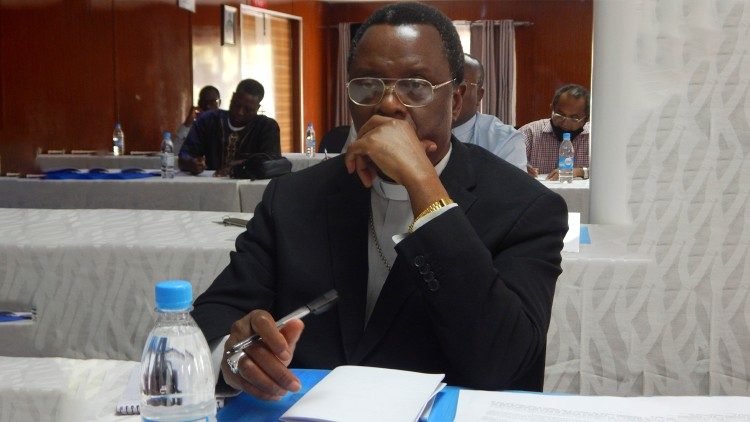Zambia holds presidential and general elections in August this year. Its reputation as a peaceful country may be put to the test.
Paul Samasumo – Vatican City.
Zambia’s 2016 presidential elections were marred by widespread political violence. The country’s image as a haven of peace took a beating. Once again, the southern African nation will be going to the polls on 12 August. The elections will be held to elect the President and National Assembly. Christian Church leaders, over the weekend, issued a pastoral statement urging Zambians to shun violence and embrace tolerance.
Avoid donations from politicians
With campaigns starting to get underway, Zambia’s politicians, especially from the ruling party, have already been crisscrossing the country to make donations in various churches and parishes. Elections are almost never mentioned with the donations but it is understood that the ‘gifts’ are meant to influence Christian voters to look favourably on their benefactor and political party. The donations are often accompanied by comprehensive coverage in the media.
All this has not been lost on the Bishops, who in the pastoral statement, tell members of the clergy that gifts from politicians might compromise the church’s prophetic mission to speak truth to power.
“Remember that if we want peace, we must work for justice. As a conscience of the nation, the church must be non-partisan and avoid receiving gifts that have the potential to make it lose its prophetic voice. In the run-up towards the elections, the church remains committed to playing a reconciliatory and peacebuilding role,” said the church leaders in a document jointly signed by President of the Zambia Conference of Catholic Bishops, George Cosmas Zumaire Lungu together with the heads of the Council of Churches in Zambia as well as the Evangelical Fellowship of Zambia.
It is a message that has been repeated several times before by the church’s leadership to their clergy. However, Zambia’s economy is in such dire straits that the Bishops’ message sometimes falls on deaf ears. The Covid-19 emergency has worsened what was already a difficult financial situation.
A new controversial Voter’s Register
Another challenge highlighted by the Bishops in their statement has to do with the decision of the Electoral Commission of Zambia (ECZ) to abandon the existing 2006 Voters’ Roll for a new one. The electoral body started a completely new Voters’ Register. It is a decision that has not gone down well with Opposition parties and civil society.
Opposition parties say that the new Voter’s Register is not comprehensive enough and has disenfranchised many potential voters in their strongholds. Fewer voters were captured in Opposition areas, they said.
The leaders of the Council of Churches in Zambia (CCZ), the Evangelical Fellowship of Zambia (EFZ), and the Zambia Conference of Catholic Bishops (ZCCB) have said in the pastoral statement that they are studying the new Voter’s Roll and will pronounce themselves on it later. “We wish to inform the nation that we are currently studying the provisional register and analysing the data and will share our findings in due course. We are doing this because the Voter’s Roll is a very important document that determines the credibility of any election,” said the Bishops.
The Church leaders nevertheless add, “While we appreciate the work the ECZ has done so far in having the current register, we are of the considered view that there was room for improvement in terms of capturing more voters if proposals for a longer extension in the registration period as well as the deployment of extra staff and more registration kits were adhered to.”
Concerns about the August election
A growing number of Zambians are beginning to air their concerns with the forthcoming August election.
A political analyst and academician, University of Zambia lecturer Sishuwa Sishuwa, fears that Zambia’s post-election scenario might be headed towards a turbulent period.
“If Zambia descends into large-scale political unrest after the 12 August 2021 general election, there are three major factors that would have driven the country to that outcome. These include the public’s increasing lack of trust in (and outright contempt for) formal institutions – like the Judiciary, the Electoral Commission of Zambia and the Police – as arbiters of the contest between those who wield state power and those seeking to acquire it,” said Sishuwa. He also said the governing PF leadership and Opposition leaders “see the August election as a matter of life and death and are likely to violently rebel against an outcome that does not favour them – especially if it lacks credibility.”
Sishuwa also attributes the possible electoral crisis to the “incriminating silence of international, mainly Western, institutions and actors who once spoke out against human rights violations and murderous attacks on democracy and exercised some kind of leverage on the actions of the political elites in power. A key reason for this quietness is the decline in funding to Zambia from major world powers,” said the Zambian academician.
Political violence before and after elections is also a concern that runs through the recent church leaders’ pastoral statement.
Government assurances for free and peaceful elections
For its part, the Zambian government said it is determined to deliver free, fair, credible and peaceful 2021 elections. In a recent address to parliament, Zambian President, Edgar Chagwa Lungu said, “I, therefore, call upon every Zambian, every political party and player, the church and the civil society to join me in assuring our people of peace and unity before, during and after the 2021 general elections. We are one Zambia, and indeed we are one nation,” the president assured.



